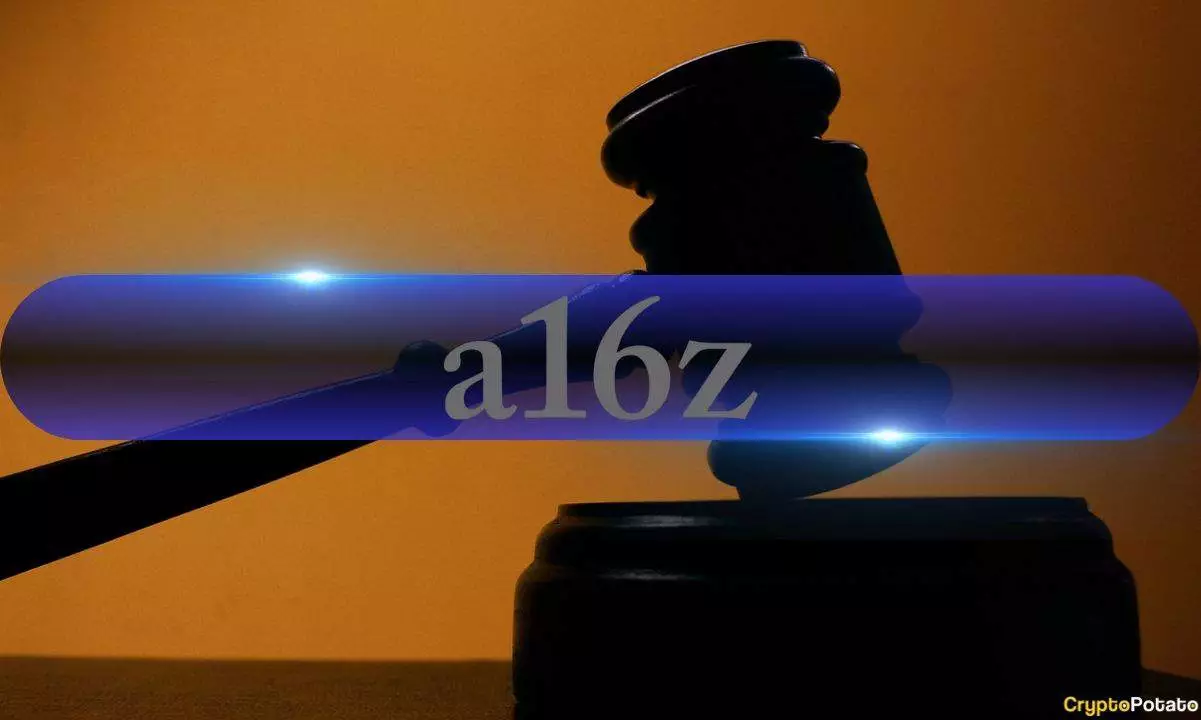The cryptocurrency landscape faces a critical challenge as regulatory bodies, notably the U.S. Treasury and the Internal Revenue Service (IRS), implement new measures that could significantly alter the trajectory of decentralized finance (DeFi). Pioneering voices within the industry are beginning to voice profound concerns regarding these developments. Michele Korver, the head of regulation at Andreessen Horowitz’s blockchain segment, A16z Crypto, has positioned herself at the forefront of this discourse, articulating a stance that champions innovation while simultaneously critiquing the regulatory approach taken by governmental entities.
In a landscape characterized by rapid evolution, the introduction of a new reporting rule aimed at brokers has prompted Korver to issue a vehement denunciation. She asserts that these regulations threaten not only the operational integrity of DeFi platforms but also the broader scope of financial innovation that the United States has historically nurtured. This overarching conflict addresses the growing concern that regulatory overreach could inadvertently suppress the very ingenuity that has driven the cryptocurrency realm to its current prominence.
As the regulatory framework evolves, various industry stakeholders are uniting to contest the implications of these new rules. Korver underscored A16z’s solidarity with the lawsuit initiated by the DeFi Education Fund, the Blockchain Association, and the Texas Blockchain Council. Their collective aim is to combat the legislation that stems from the Infrastructure Investment and Jobs Act, specifically regarding its expansive definition of what constitutes a broker.
The crux of the legal argument presented in this lawsuit is that DeFi platforms, which facilitate user interaction with decentralized protocols, do not directly facilitate transactions in the traditional sense. This distinction is critical as it decouples DeFi from the conventional broker framework, thus positioning DeFi as an environment that should not be subjected to the same regulatory burdens. Critics, including Korver, argue that the rule contravenes the Administrative Procedure Act (APA) and extends beyond the legal authority bestowed upon the Treasury.
The Implications of Regulatory Decisions
Korver’s statement on the rushed nature of the rule’s introduction suggests a deeper concern that regulatory bodies are not giving due deliberation to the potential ramifications of their decisions. Characterizing this process as a “midnight” decision, she points to the need for a more nuanced understanding of DeFi’s capabilities and its transformative potential in delivering accessible financial services. The apprehension is that a stifling regulatory atmosphere could incentivize enterprises to move their operations offshore, hence diminishing the U.S.’s competitive edge in the burgeoning fintech sector.
Supporting this perspective, Jake Chervinsky, head of policy at the Blockchain Association, emphasized the rapid legal response from the crypto sector, highlighting its capacity to adapt and fight back against regulatory imposition. His optimism mirrors sentiments echoed by a number of influential figures in cryptocurrency, each expressing a staunch belief that the industry can successfully counteract potential overreach via legal and legislative avenues.
Voices of Dissent: Industry Perspectives
Further strengthening this stance, key industry figures have voiced strong critiques of the IRS rule. Hayden Adams, founder of Uniswap, articulates concerns regarding the rule’s timing and intentions, suggesting that its implementation serves to inhibit innovation rather than facilitate regulation. Adams, alongside other executives, is rallying for legislative and legal challenges to overturn this ruling, convinced that organized efforts will ultimately prevail.
In a detailed critique, Uniswap’s Chief Legal Officer, Katherine Minarik, deconstructs the reasoning behind the IRS’s classification of DeFi protocols as brokers. Minarik’s arguments highlight the inconsistencies within the proposed rule, advocating a reconsideration to avoid unnecessary burdens that could jeopardize the operational viability of DeFi.
As the DeFi sector stands on this regulatory precipice, the urgency for collective action becomes apparent. The efforts led by A16z and other stakeholders represent not only a defense of decentralized financial systems but also a broader call for balanced regulatory frameworks that foster innovation without stifling diversity in financial services. The outcome of these contests will undoubtedly shape the landscape of finance for years to come, determining whether the U.S. remains a hub of futuristic financial technology or succumbs to regulatory constraints that hamper progress. Policymakers must tread carefully, forging paths that harmonize oversight with the celebration of groundbreaking innovation that DeFi embodies.














Leave a Reply